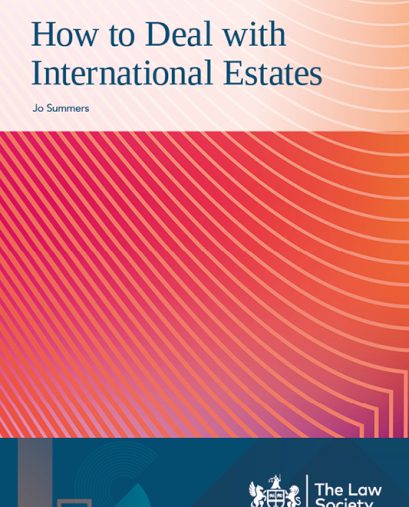Jurit welcomes Arbitration Act 2025

The Arbitration Act 2025 (the Act) received Royal Assent on 24 February 2025 and is a significant milestone in enhancing the efficiency and appeal of arbitration in England and Wales.
The Act reaffirms the UK’s position as a premier destination for international dispute resolution, which the Law Commission estimates is home to some 5,000 arbitrations each year, contributing around £2.5 bn to the UK economy in fees alone.
But what are the key provisions of the Act and what will it mean for arbitration in the UK? International arbitration experts, Ben Macfarlane and Julian Gray from Jurit LLP, explore.
The Arbitration Act 2025 is a natural and thoughtful evolution of the English arbitration framework, previously consolidated under the 1996 Act.
According to the Minister of Justice, Sarah Sackman KC, it “…ensures that arbitration law keeps this country ahead of the rest and supports economic growth as part of this government’s Plan for Change”.
London leads the way as international arbitration hub
The positive statement by the Minister of Justice reflects the importance of London as a leading international hub for arbitration which has long been a forum of choice for international parties, not just domestic ones.
The government values a dispute mechanism within a transparent and long-established legal system which has an unrivalled reputation for certainty, expertise and fairness, yet outside the complexity and cost of the country’s court system.
The courts can and will intervene to monitor and enforce certainty and fairness in arbitration proceedings, but the circumstances in which they are permitted by the legislature to do so are, deliberately, very limited.
However, ‘growth’ is at the top of the government’s agenda and even a tried and tested system can be amended and improved to reflect changes in the commercial world.
New law focuses on making arbitration an effective and fair alternative to litigation
One of the major changes introduced by the Act is to provide arbitrators with the power to make summary Awards. These can relate to claims or defences or issues in the arbitral proceedings.
The test is whether a party has “no real prospect of succeeding” on the claim/defence/issue in question.
Provisions of this kind are already included in the rules of several leading arbitral bodies including the London Court of International Arbitration (LCIA).
They mirror the provisions in the High Court (CPR 24.3) for litigation. Because of this mirroring of terminology, there is a great deal of existing jurisprudence on what the terms “no real prospect of succeeding” means. So, arbitrators should have little difficulty in applying the new law.
To ensure fairness, the Act provides that “an arbitral tribunal must afford the parties a reasonable opportunity to make representations to the tribunal” in respect of the matter to be determined summarily.
It is also possible for the parties to agree to contract out of this provision, but it seems unlikely that many will do so.
Other key provisions of the Arbitration Act 2025, include:
- Governing Law Clarification: In the absence of a specified choice of law in an arbitration agreement, the Act stipulates that the law of the arbitration’s seat will govern the agreement. This provision seeks to reduce legal uncertainties and prevents protracted disputes over applicable laws.
- Mandatory Disclosure by Arbitrators: Arbitrators are now required to disclose any circumstances that might reasonably raise doubts about their impartiality. This duty is continuous and extends to situations that arbitrators ought to be aware of, promoting transparency and trust in the arbitration process.
- Enhanced Arbitrator Protections: The Act provides arbitrators with greater immunity from legal actions, particularly concerning resignations and associated costs, unless bad faith is demonstrated. This measure encourages arbitrators to make impartial decisions without fear of unwarranted litigation.
- Recognition of Emergency Arbitration: The Act acknowledges the role of emergency arbitrators, granting them the same powers as traditionally appointed arbitrators. It also enables courts to enforce orders issued by emergency arbitrators, facilitating swift resolutions in urgent matters.
- Extended Court Support: Courts are now explicitly authorised to issue orders affecting third parties not involved in the arbitration agreement, such as preserving evidence or compelling witness testimony. This extension enhances the arbitration process’s effectiveness by ensuring comprehensive judicial support.
The Act applies to arbitrations started after the commencement date (which has not yet been determined).
Jurit LLP has a thriving practice in international arbitration matters led by partners Julian Gray and Ben Macfarlane, both of whom are very experienced practitioners in the field.
As a virtual law firm, Jurit provides a cost-effective solution founded on in-depth experience and technical excellence for those clients facing the prospect of arbitrating their dispute.
For help and support with your dispute resolution requirements, get in touch.
Please note this paper is intended to provide general information and knowledge about legal developments and topics which may be of interest to readers. It is not a comprehensive analysis of law nor does it provide specific legal advice. Advice on the specific circumstances of a matter should be sought.










